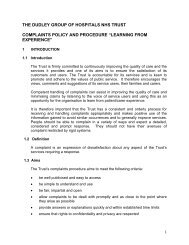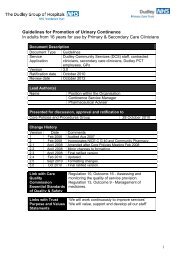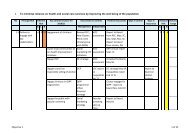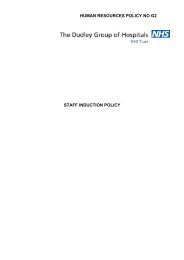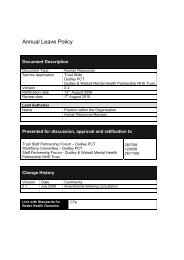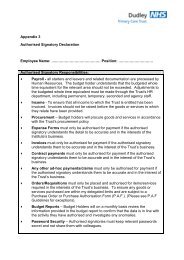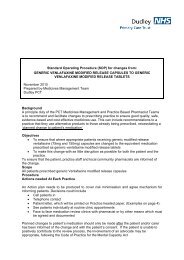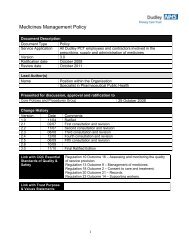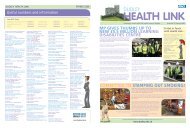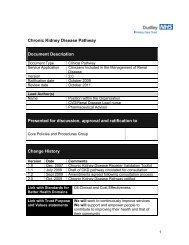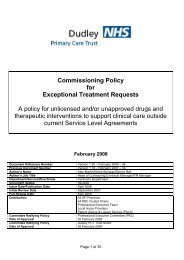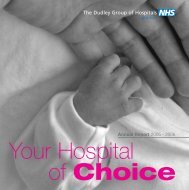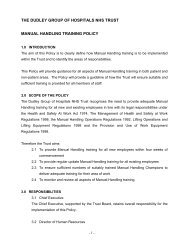Dudley Strategy for Tackling Health Inequalities 2010-15
Dudley Strategy for Tackling Health Inequalities 2010-15
Dudley Strategy for Tackling Health Inequalities 2010-15
- No tags were found...
You also want an ePaper? Increase the reach of your titles
YUMPU automatically turns print PDFs into web optimized ePapers that Google loves.
3. Communication and EducationDSSS work in partnership with many local organisations to provide public andworkplace education and media campaigns. These are planned to link to nationalcampaigns such as No Smoking Day and Smokefree England to maximise localimpact. All local stop smoking service education materials are branded in line withSmokefree England, again to maximise the impact of national advertising and mediacampaigns. DSSS have won several national awards in the last three years <strong>for</strong> its NoSmoking Day education and media campaigns. This year there is no nationaladvertising due to Government cuts so there will be a need to maintain a highpresence locally.DSSS commissions Environmental <strong>Health</strong> Services to carry out workplacesmokefree inspections, educate employers on selling illicit tobacco and promote stopsmoking service provision in the workplace. It is anticipated that this partnershipapproach will increase the number of routine and manual smokers accessing stopsmoking services.Smoke free HomesExposure to secondhand smoke (SHS) is harmful to health, particularly <strong>for</strong> children.The home is where children are exposed to SHS the most with the main source ofexposure being from their parents and in particular maternal smoking. Exposing newborn babies and children to SHS is a major risk factor <strong>for</strong> bronchitis, pneumonia,coughing and wheezing, asthma attacks, middle ear infection, cot death and possiblycardiovascular and neurobiological impairment.DSSS has been working with a wide range of organisations on promoting SmokefreeHomes focussing interventions initially in pregnancy and pre-school years wherechildren may not have a voice. This area of work is being reviewed through socialmarketing activities both with health professionals and parents. It is planned toexpand and develop this area of work to include early years and primary schoolsaiming to educate parents and children to champion the smokefree message in theirown homes. Work is already underway on recording exposure to SHS in the homesthrough a more structured approach to data collection from Personal Child <strong>Health</strong>Records (PCHR) and also through the <strong>Dudley</strong> Schools <strong>Health</strong> Related BehaviourQuestionnaire.Schools and Youth EducationThis workstream has been integral to <strong>Dudley</strong>‟s tobacco programme working inpartnership with <strong>Dudley</strong> <strong>Health</strong> Promoting Schools Service. It aims to deliver adevelopmental tobacco education programme in primary and secondary schools.This year has seen young people involved in the redevelopment of this programmewith more of a youth advocacy approach. This has given us more insight to whatyoung people want and need. A smoking toolkit has been developed and is due tobe launched in March 2011. We are also looking at new ways to provide tobaccoeducation through a match funded arts and health project that will see 10 newprojects being delivered by youth groups across <strong>Dudley</strong>. These will be robustlyevaluated and reported on through <strong>Dudley</strong>‟s Youth Council and the TAG.101



